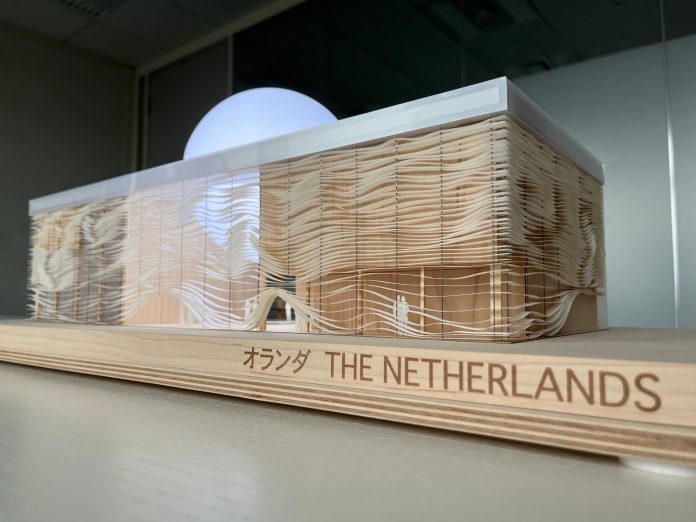The Netherlands has announced its participation in Expo 2025 Osaka, Kansai, Japan. The Netherlands Pavilion is unique in that it is based on a fully circular concept and features an anthropogenic sun. Individuals and representatives of businesses, governments and knowledge institutions who visit the pavilion will discover new technologies that can harness the power of water, making renewable energy more accessible to everyone. The Netherlands Pavilion presents the innovative solutions that the Netherlands has to offer for tackling global challenges linked to the energy transition.
Minister for Foreign Trade and Development Cooperation Liesje Schreinemacher announced the design of the winning consortium at the launch event on Monday.
‘Making clean, renewable energy accessible to everyone is the key to a sustainable society and a sustainable economy,’ said Ms Schreinemacher. ‘The Russian war in Ukraine has put energy security higher on many countries’ agendas. I’m proud of the Dutch design, which showcases the innovative solutions that the Netherlands has to offer and introduces visitors to the possibilities of a zero-emission future driven by circularity.’
The pavilion was designed by architecture firm RAU, engineering consultancy DGMR, experience design studio Tellart and Japanese construction company Asanuma. These parties have extensive experience in circular design and construction and specialise in solutions for safe, sustainable and healthy living environments.
Cross-border challenges and solutions
Expo 2025 Osaka centres around the challenges facing a world where major crises relating to matters such as climate change and health will determine our quality of life. These cross-border challenges require international cooperation. The Netherlands Pavilion is therefore intended as a place that brings together different perspectives and expertise to create joint solutions.
The Dutch Ministry of Foreign Affairs has set up a multi-year campaign in the run-up to the Expo. During the Expo itself businesses, knowledge institutions, governments and cultural organisations will come together in the pavilion to share knowledge and expertise. Events, visits, trade missions and exhibitions will be organised in the lead-up to the Expo as part of the Road2Osaka programme. Businesses and organisations will be invited to participate, and the pavilion and programme will also offer opportunities for sponsorship.
The design
The theme of the Netherlands’ participation is ‘Common Ground: creating a new dawn together’. The contribution introduces new technologies that will use water power to generate zero-emission energy, making energy more accessible to everyone. The rising sun in the pavilion’s design symbolises unlimited clean energy, and the pavilion itself is also completely circular.
Host country
Japan is the world’s third largest economy and an important trade partner for the Netherlands. In 2022 the Netherlands exported goods worth nearly €4.3 billion to Japan. In the same year Japan exported €7.4 billion worth of goods to the Netherlands. The Netherlands is also a major destination for Japanese investment.
‘The year 2025 will mark 425 years of Dutch relations with Japan,’ said Ms Schreinemacher. ‘Japan is an important partner for us when it comes to innovation, trade, culture and politics. Expo and Japan offer Dutch companies, organisations and art institutions many opportunities to share their knowledge and work together.’
Like the Netherlands, Japan faces pressing and complex challenges, including climate change, resource scarcity, food insecurity, demographic ageing and maintaining access to the healthcare system. Opportunities for Dutch businesses and organisations are primarily in the areas of the energy transition, agriculture and horticulture, life sciences and health, digitalisation and culture. Various ministries and public and private parties are organising activities in the lead-up to and during Expo to put these Dutch sectors on the map and help businesses take advantage of opportunities.

